John was in some reasonably high profile films produced by UFO in the mid-90’s. These were a series of films inspired by the American TV show The Wonder Years that traced a young man’s development as he transitions from adolescence to adulthood. These are Yesteryou, Yesterme, Yesterday (1993), Over the Rainbow Under the Skirts (1994), Yesterday You, Yesterday Me (1997). His portrayal of this character is very low key but winning. John also appeared in the well-regarded UFO film Always on my Mind (1993). He seems to have dropped out of sight until the recent low budget and not very good Money Laundry (2000) in which his character is still attending university!
Caroline Chai had this to add:
John Tang Yat Kwan has also been with TVB for years now. His youngish face still gets him youngish roles and he still occasionally plays teenagerish roles (On the Track or Off - Steven Ma, Ada Choi, Bondy Chiu). He was quite well received in 1998's Burning Flame (Louis Koo, Waise Lee, Jade Leung) where he played Louis Koo's character's mentally retarded brother. John Tang is probably considered too short and too youngish looking to be leading man material.

Born in HK in 1968
Jordan is an interesting case. Clearly, not that physically attractive a man or at all imposing, nevertheless he has managed to become a leading man of sorts and seems to be one of the more popular contemporary male actors with a large female fan base in particular. He brings a certain charm and a definite attitude towards his roles that set him apart from most other actors. He has personality – quirky to some degree - and it comes across in his films. He is loose and playful – generally gives his characters a puckish sense of humor – (but can also play uptight and straight arrow; cf. his roles in Big Bullet and Hot War) – and seems to be enjoying himself on the screen. Yet his characters often come across as righteous as well as rascals. He still seems at that stage in his career where he plays Gen-X type characters – but it would be very intriguing to see what he could do with a more serious film – something along the lines of one of Milkyway’s noir like films (as opposed to one of their recent comedies).



Some other films that are worth seeing Jordan in are Bio-Zombie (a comedic horror favorite of many), Fox Hunter (1995), Big Bullet (1996, as a by the book cop), Kitchen (1997), Whatever You Want, Downtown Torpedoes, Hot War, Enter the Eagles (1998) and Help!!! (2000). When you think about it, this is a pretty amazing and also rather diverse resume in a seven-year period.
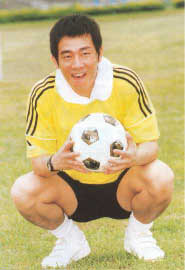
Josephine is a fine dramatic actress with a wonderfully lean, strong angular face who seems to have been under utilized in HK films. Most HK film fans probably know her best from Police Story III (1992) in which she plays the villain’s wife that they break out of prison – but most of her efforts have been in serious dramatic films. Some of these are To Liv(e) (the one directed by Evans Chan rather than the similar titled Zhang Yimou production), A Fishy Story (Kenny Bee’s "older woman"), Red Dust (the publisher), Full Moon in New York (Maggie’s lesbian friend), Maiden Rose (1995), Queen of Temple Street (1990), and Homecoming (1984).

Born in 1947 in Shanghai
Without a doubt Josephine Siao is one of the greatest HK actresses of the second half of the twentieth century. Her career spanned some five decades and she was always a star – right from the beginning as a child actor through the teenage years into adulthood to her retirement.

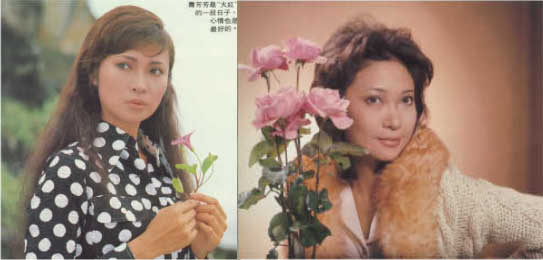
There was also Jumping Ash, a precedent of the police procedual and a precursor of the new-wave movies with it's hand-held camera work, on location shooting and blending of tone: comedy, suspense, action. Siao had only a small part on the screen as the hero-cop "girlfriend", but behind it she co-directed with Po Chi-lin and co-wrote with Phillip Chan.
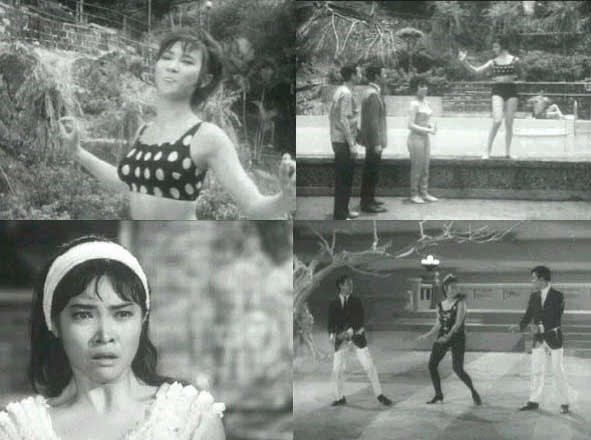
In the 80's she folded up her production company and entered again into marriage and soon motherhood. In 1987 she received the Best Actress award for Wrong Couples, but her true comeback was not until the 90's. In the early 1990s, she received acclaim from a new generation of movie goers with her appearance in Stephen Chow’s Fist of Fury 1991 II and portrayal of Fong Sai Yuk’s mother (who at one point pretends to be his brother, Fong Tai Yuk, and goes out to fight to regain the Fong family honor!). In 1995 she received yet other - including one at the Berlin Film Festival - Best Actress awards for Summer Snow. Other official recognition she received for Summer Snow included her being made a Member of the British Empire by Queen Elizabeth II. In 1996 she played a retiring Cantonese opera star in the terrific Hu-Du-Men. Her last film was the 1997 Mahjong Dragon.

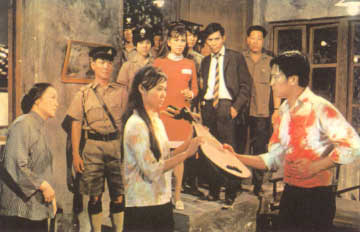
Today she is married (to a senior executive at the Hong Kong Telecom) and has two daughters. Somewhat appropriately, she has become a child psychologist (having got an MA degree in that field some time in the 1990s). She is also very active with children’s charities and welfare in Hong Kong. This amazingly versatile woman additionally has taught English on television and written a best-selling book on Western etiquette.
(Thanks to Yves Gendron for his assistance on this one)
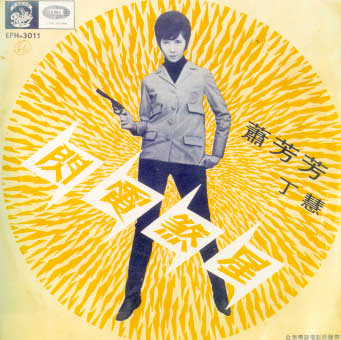
Josie burns in Purple Storm with an intensity that makes her unforgettable. Though her part is limited – and her dialogue sparse – her role as a Khmer Rouge assassin is the highlight of the film. It turns out that she is from a very wealthy family – her father, Ho Hung-sum, is a business magnate – but Josie decided show biz was the path for her to follow.

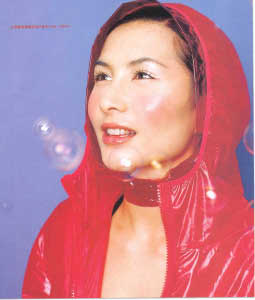
Joyce grew up in HK, the child of a mixed marriage – an Australian father and a Chinese mother and like many actresses before her Joyce was discovered by winning the Miss Hong Kong beauty contest in 1986. She was offered a few film roles after that – Ghost Snatchers, Born to Gamble, but her major break came when Sammo Hung offered her a job in his film Eastern Condors in which her smallish role of a Cambodian guerilla is simply astonishing in its intensity. Deadly China Dolls reports her saying of Sammo “Sammo is the least sexist film-maker in the world. He treats women just like men.”

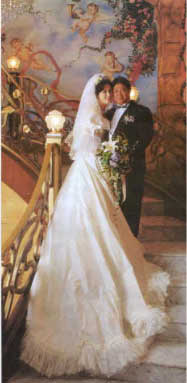
This Taiwanese actress did not appear in many films considering that it spanned for nearly thirteen years from 1983 to 1995. Her debut was in the excellent Ringo Lam supernatural tale Esprit D’ Amour in which she plays the ghost. The film is very intense and she is terrific. After that she appeared in only around a dozen other films – Intellectual Trio, Unforgettable Fantasy, Hong Kong Grafitti are a few from the 1980’s. In the 90’s she was in the classic Chinese Feast (Kenny Bee’s wife), Slave of the Sword and Midnight Caller (Michael Wong’s police partner).

Judy Lee like so many of the femme fatales from the kung fu era was born in Taiwan. Judy came from a tradition of Peking Opera in her family as both her father and aunt were in this field. She studied for seven years and was a classmate of Angela Mao at their Peking Opera school and in 1972 Yeung Kwan discovered her and cast her in her first film (made in 18 days). Queen Boxer was a hit and Judy went on to make over sixty films in her career.
Though she never received the acclaim of Angela Mao in the West, Judy had immense skills and is wonderful to watch in action. The final twenty minutes of Queen Boxer captures the magnetism and grace of this woman as she battles and kills a near army of men on her own. It is an astounding piece of work. Some other films of hers are Iron Swallow, Female Chivalry, Story in the Temple of the Red Lilly, Lady Constables (which co-stars Angela) and The Escape for which she won The Golden Horse Best Actress award. She retired in the early 80’s. An interview with her -- along with film snippets -- is worth catching in the British documentary, Top Fighter 2: Deadly China Dolls.
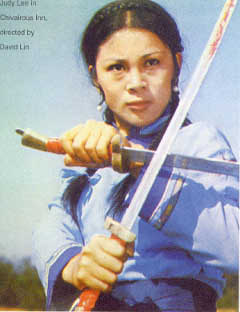
The only film I have seen Judy Ong credited for is in the classic Zu Warriors of the Magic Mountain. In this she plays Lady Li I-chi and she looks simply stunning. The magical image of her is something you don’t forget.
Judy was born in 1950 in Taiwan and moved to Japan when she was very small. There she received her primary and early secondary education and thus her Japanese is just as fluent (or even more fluent than) her Chinese. She later went back to Taiwan and become a major star in pop music. Music was her focus and she only appeared in a very limited number of films. She was regarded as 'the brightest star of the precious inland' (as Taiwan is sometimes referred to) and she also became very popular in Japan (very understandable). She later retired in the early 80s and became a freelance artist, an engraver.
(Info and write up from James Chang)
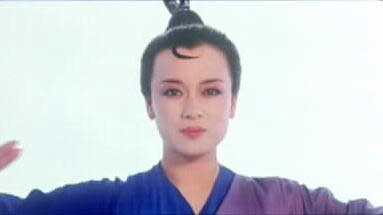
Born 08/27/71
In my mind, Julian is one of the pretty boys that seem to be taking over HK films at times. Though his popularity seems to have ebbed now, in the mid-90s he was doing quite well for a couple years with films such as To Be No. 1, Best of the Best, Love, Amoeba Style, Theft Under the Sun, Option Zero, Extreme Crisis and The Suspect. In yuppie type roles, he is fine. The problem was these were primarily action films and he simply doesn't have the stuff to be an action star. He didn’t particularly impress either in what might well be Stanley Kwan’s one and only critical as well as box office bomb, The Island Tales. He has been lucky enough though to be going with Anita Yuen for a number of years now (and might actually currently have a more successful performing career than her).
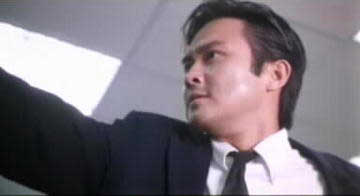
|
|
|
|